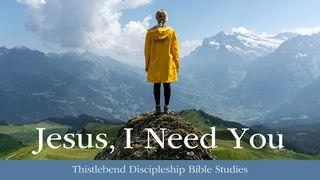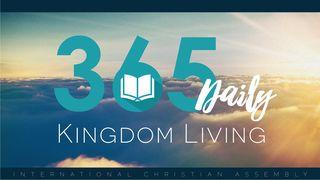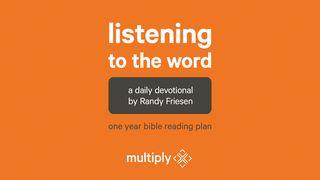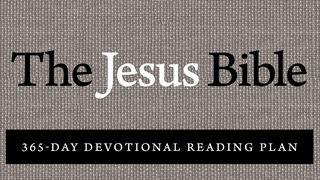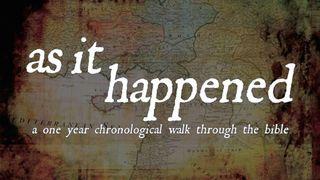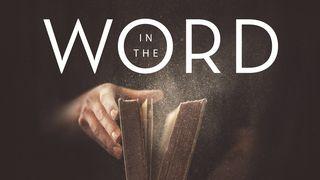For The Love Of GodSample

WHEN JERUSALEM FELL IN 587 B.C. (Jer. 39), Zedekiah was punished horribly, though leniently by the standards of siege warfare of the day. As for Jeremiah, probably the reports of his prophecies about the fall of Jerusalem soon filtered through the captives to Nebuchadnezzar (who was not himself at Jerusalem, but maintained regional headquarters at Riblah, leaving the final assault to his commander Nebuzaradan). In consequence the emperor gave orders that Jeremiah was to be well-treated (Jer. 39:12). Initially that order was carried out, and Jeremiah was turned over to Gedaliah (Jer. 39:13-14), who became the new governor of the region after the imperial troops had withdrawn, taking countless captives into exile.
That sets the stage for Jeremiah 40. The framework of the story is simple enough; the closing verses of the narrative evoke reflection on a terribly important theme. First, the framework: Those who were to be transported to exile were gathered at Ramah, which served as a rallying point about five miles north of Jerusalem. Despite Nebuchadnezzar’s instructions to leave Jeremiah with Gedaliah, somehow the prophet was swept up in this group (Jer. 40:1). Anyone familiar with the confusion of war understands how easily this could have happened. The commander Nebuzaradan freed him and offered to take him to Babylon; probably it would have added to the commander’s prestige back home to be the patron of a great prophet who had predicted Babylon’s success. But Jeremiah was free to make his own decision, and he opted to stay with the remnant in Judah. Nebuzaradan provided him with food and a gift (Jer. 40:5)—one more instance of the principle that a prophet is often honored by everyone except those closest to him (cf. Matt. 13:57).
But the account rushes on to describe the early stages of Gedaliah’s governorship. On almost all fronts he did the right thing. He encouraged the poor to settle down and till the land and gather the harvest. He drew in the Jewish “army officers still in the open country” (Jer. 40:13), a potentially dangerous guerrilla force that might have broken out in the kind of anarchy that would have angered Babylon again. Even those who had fled to nearby countries began to return home (Jer. 40:11-12), reassured by the moves Gedaliah was making to ensure stability. But Gedaliah’s great weakness was that he could not believe ill of people. Despite all the evil of the previous years, he still did not believe that evil happens, that evil people do evil things, that leadership must sometimes oppose evil. On so many fronts he was a good man. But he paid for his Pollyannish optimism with his life.
That sets the stage for Jeremiah 40. The framework of the story is simple enough; the closing verses of the narrative evoke reflection on a terribly important theme. First, the framework: Those who were to be transported to exile were gathered at Ramah, which served as a rallying point about five miles north of Jerusalem. Despite Nebuchadnezzar’s instructions to leave Jeremiah with Gedaliah, somehow the prophet was swept up in this group (Jer. 40:1). Anyone familiar with the confusion of war understands how easily this could have happened. The commander Nebuzaradan freed him and offered to take him to Babylon; probably it would have added to the commander’s prestige back home to be the patron of a great prophet who had predicted Babylon’s success. But Jeremiah was free to make his own decision, and he opted to stay with the remnant in Judah. Nebuzaradan provided him with food and a gift (Jer. 40:5)—one more instance of the principle that a prophet is often honored by everyone except those closest to him (cf. Matt. 13:57).
But the account rushes on to describe the early stages of Gedaliah’s governorship. On almost all fronts he did the right thing. He encouraged the poor to settle down and till the land and gather the harvest. He drew in the Jewish “army officers still in the open country” (Jer. 40:13), a potentially dangerous guerrilla force that might have broken out in the kind of anarchy that would have angered Babylon again. Even those who had fled to nearby countries began to return home (Jer. 40:11-12), reassured by the moves Gedaliah was making to ensure stability. But Gedaliah’s great weakness was that he could not believe ill of people. Despite all the evil of the previous years, he still did not believe that evil happens, that evil people do evil things, that leadership must sometimes oppose evil. On so many fronts he was a good man. But he paid for his Pollyannish optimism with his life.
About this Plan

A daily devotional for discovering the riches of God's word: For the Love of God is a daily devotional designed to walk a person through the Bible in a year while assisting the reader in discovering the riches of God's Word. Our hope is that this daily devotional will deepen your understanding and appreciation of God's Word, for the love of God.
More
We would like to thank The Gospel Coalition for providing this plan. For more information, please visit: thegospelcoalition.org

